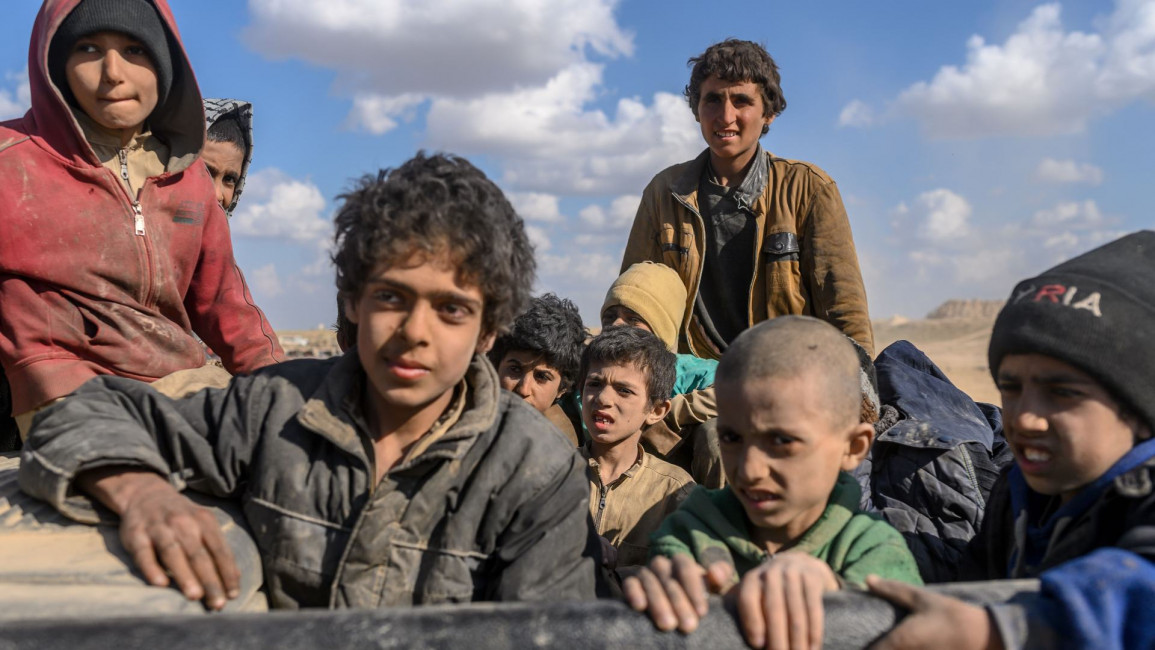Mental health crisis plaguing Yazidi child survivors of IS, says Amnesty
In a new report based on dozens of interviews in northern Iraq, the rights group found that 1,992 children who faced torture, forced conscription, rape and other abuses at the hands of IS were not getting the care they need.
"While the nightmare of their past has receded, hardships remain for these children," Matt Wells, deputy director of Amnesty's crisis response team said on the report's release. "After enduring the horrors of war at an extremely young age, they now need urgent support from the national authorities in Iraq and the international community to build their future."
"Survivors of horrific crimes, these children now face a legacy of terror. Their physical and mental health must be a priority in the years ahead if they are to fully reintegrate into their families and community," Wells added.
The Yazidis are an ethno-religious minority which numbered around 550,000 in their heartland of northwest Iraq before IS swept through the region in 2014.
Claiming the Yazidis to be heretics, IS slaughtered thousands of men, abducted and enslaved women and girls and forced boys to fight on its behalf.
Twitter Post
|
Yazidi children were forcibly converted to Islam and taught Arabic, banned from speaking their native Kurdish.
To this day, child survivors suffer "debilitating long-term injuries," as well as post-traumatic stress disorder, depression, anxiety, mood swings, aggression and flashbacks, the report details.
The report singles out former child soldiers and girls subjected to sexual violence as the two categories the most in need of rehabilitation.
Sahir, a 15-year-old former IS child soldier, told Amnesty that he knew he needed mental support to cope with his trauma but felt he had nowhere to turn.
"What I was looking for is just someone to care about me, some support, to tell me, 'I am here for you'," he said.
"This is what I have been looking for, and I have never found it."
Boys forced to fight are especially likely to suffer from physical disabilities such as lost arms or legs.
'Accept our children'
Amnesty said access to education could help ease children back into society, but tens of thousands of Yazidis still live in displacement camps where schooling is irregular.
Many have also gone into debt from paying thousands of US dollars to smugglers to free Yazidi relatives who were held by IS.
Yazidi mothers forcibly wed to IS fighters are struggling to heal their own psychological scars, while dealing with the stigma of having children born to jihadist fathers.
Twitter Post
|
"I want to tell (our community) and everyone in the world, please accept us, and accept our children... I didn't want to have a baby from these people. I was forced to have a son," said 22-year-old Janan.
Many Yazidi women who were rescued from IS' last bastion in Syria over the last two years were forced to leave their IS-born children behind when they returned to their families in neighbouring Iraq.
Girl survivors of sexual violence suffer from a range of serious health conditions, including traumatic fistulas, scarring, and difficulties conceiving or carrying a child to term, the report said.
A doctor providing care for Yazidi survivors told Amnesty that almost every girl she had treated aged between nine and 17 had been raped or subjected to other sexual violence.
"We have all thought about killing ourselves, or tried to do it," said Hanan, a 24-year-old Yazidi whose daughter was taken from her.
Mothers must be reunited with their children and no further separation should take place, Amnesty said.
"These women were enslaved, tortured and subjected to sexual violence. They should not suffer any further punishment," said Wells.
"They need to be reunited with their children, and any future separations must be prevented. They must be offered the opportunity of international resettlement or relocation together with their children, given the enormous risks they face in Iraq," he added.
Agencies contributed to this report.
Follow us on Facebook, Twitter and Instagram to stay connected



